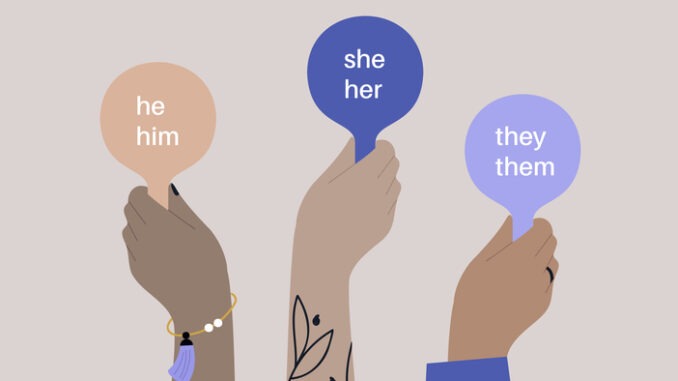As reported by The Telegraph, a charity’s guidance on addressing trans pupils with “new names” and “correct pronouns” contradicts government consultation, sparking concerns and accusations of adopting a “divisive, radical agenda”
Governors for Schools (GfS), an education body that fills voluntary governor vacancies across England and Wales, published its guidance in November.
In December 2023, the Department of Education (DfE) published a draft consultation saying that primary aged children in England “should not have different pronouns to their sex-based pronouns used about them”, and that for older children schools “can decline a request to change a child’s pronouns”.
In an article titled “The Importance of Trans Awareness Week”, GfS advises governors to be “aware of issues directly affecting trans pupils, such as making sure that they are referred to with their new name and correct pronouns and that they are able to present in a way that feels comfortable, among other needs, allows members of governing boards to have meaningful discussions about supporting transition”.
Miriam Cates, a Tory MP, said: “The role of a school governor is to be a critical friend to the head teacher and school leaders and to ensure correct management of the school.
“Governors should in no way be pushing divisive, radical and incorrect political ideas about gender that are in direct conflict with child safeguarding. It is hugely concerning that an organisation recruiting school governors has swallowed this radical agenda hook, line and sinker.”
The charity has previously suggested that schools have their own “pride group” (an LGBT and ally lunchtime club) and take part in LGBT History Month and Pride.
On Thursday, GfS updated its online resources, linking to a “DEI [diversity, equity, and inclusion] Toolkit”, where there are resources about “microaggressions” and psychological safety, as well as a glossary that explains “critical race theory”, “decolonisation” and “gender pronouns” to teachers.
Commenting on GfS’s guidance, Maya Forstater, co-founder and executive director of campaign group Sex Matters, said: “Being inclusive does not mean losing touch with reality, or safeguarding. School governors are ultimately responsible for making sure that children are kept safe.
“They cannot do this if they forget that boys cannot become girls, and girls cannot become boys. Governors that understand safeguarding should recognise that it puts children in danger if the adults around them indulge in the idea that a boy in a dress is a girl.”




Be the first to comment